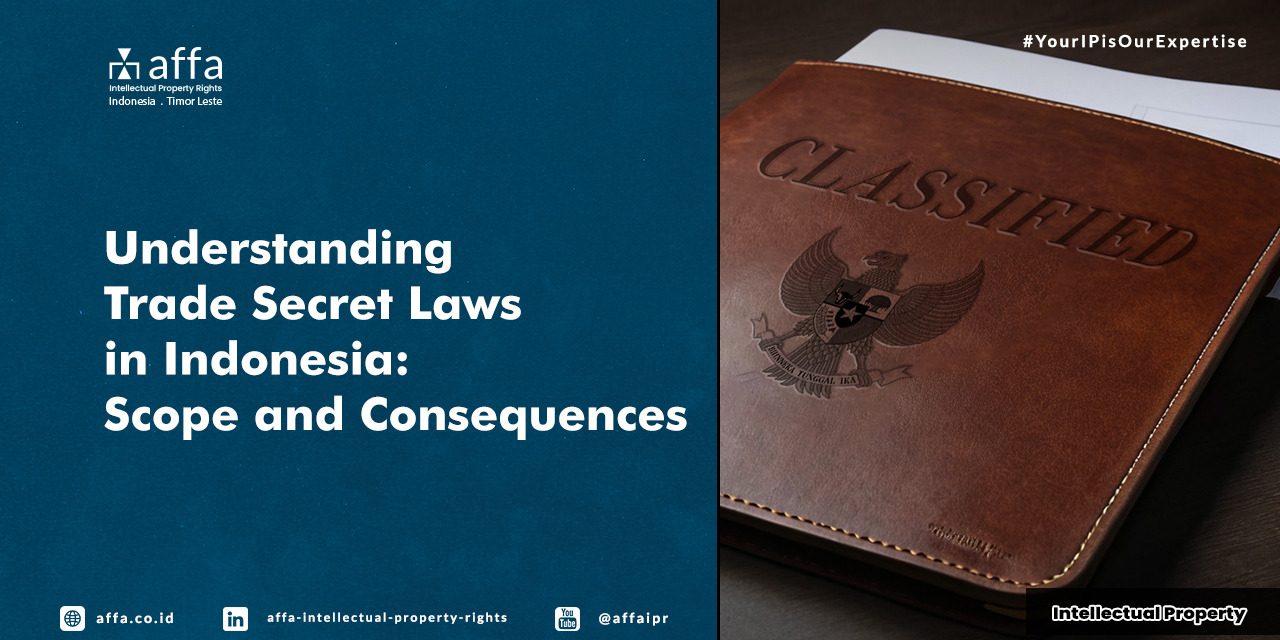Trade Secrets are the recipe for business success in various fields, such as culinary, IT, pharmaceuticals, and biotechnology.
The public often seeks ways to discover or exploit these “secrets to success” through various means, including claiming and exposing these secrets on social media.
So, what exactly are the scope and consequences for disclosing Trade Secrets? We’ve summarized it for you.
Trade Secrets are governed by Law No. 30 of 2000 concerning Trade Secrets (Trade Secret Law). The definition of Trade Secrets, as outlined in Article 1, point 1, of the Trade Secret Law, is information that is not generally known to the public in the field of technology and/or business and has economic value because it is helpful in business activities, and is kept confidential by the owner of the Trade Secret.
So, what does a Trade Secret encompass?
Article 2 of the Trade Secret Law describes the scope of Trade Secret protection as follows:
- Production Methods
Various steps and technologies are used to convert raw materials into finished goods.
- Processing Methods
Methods focusing on the steps necessary to alter or modify the properties of raw materials.
- Sales Methods
Various strategies or methods to sell products or services to consumers, considering variables like target market, product type, and sales objectives.
- Other Information in Technology or Business
This category includes product development research, customer data, agreements with third parties, and future business strategies.
- Economic Value
Have other secrets that provide a competitive market advantage and financial potential.
- Not Known to the General Public
The information is not a “public secret,” meaning it is known only to certain parties and not widely known by the general public.
A common dilemma for business owners is whether to file a Patent for their Trade Secret or keep it confidential indefinitely.
However, you should know that there is a criminal penalty of up to 2 (two) years imprisonment and/or a fine of up to IDR 300,000,000 (three hundred million rupiah) for parties without permission, using the Trade Secret.
To protect your Trade Secret, here are a few options to consider:
- Document all methods and/or other information as thoroughly as possible.
- Keep the information confidential by drafting a Non-Disclosure Agreement (NDA) signed by all parties involved.
- Update the documentation whenever there are updates to the methods and/or other information related to the Trade Secret.
Additionally, you can implement access restrictions or encrypted technology to secure confidential documents, preventing unauthorized access.
However, you want to license your Trade Secret to a third party. In that case, you must record it with the Directorate General of Intellectual Property (DGIP) to obtain legal protection from unauthorized third-party violations.
Should you need more information on Trade Secret protection in Indonesia, you can contact us via email: [email protected].







